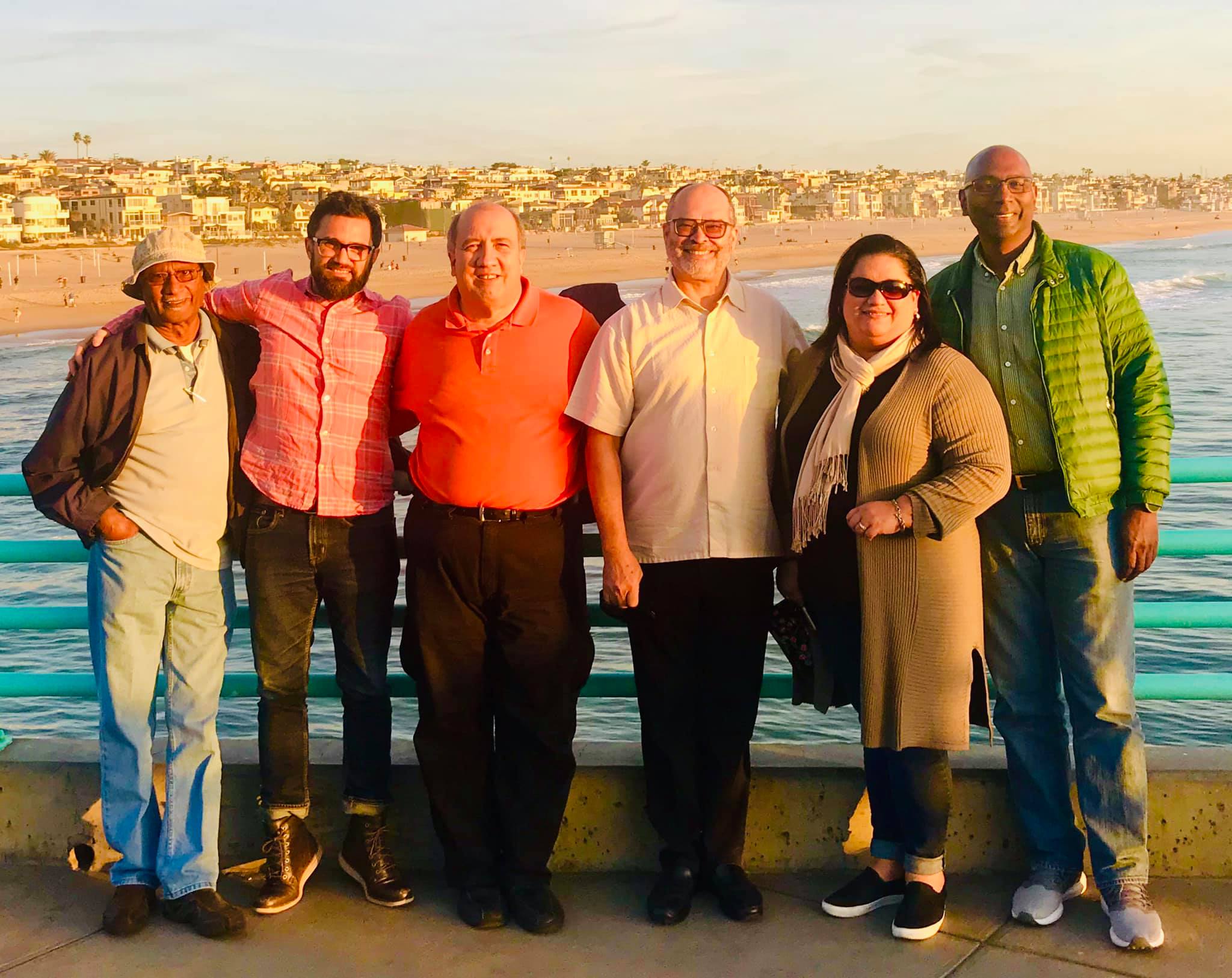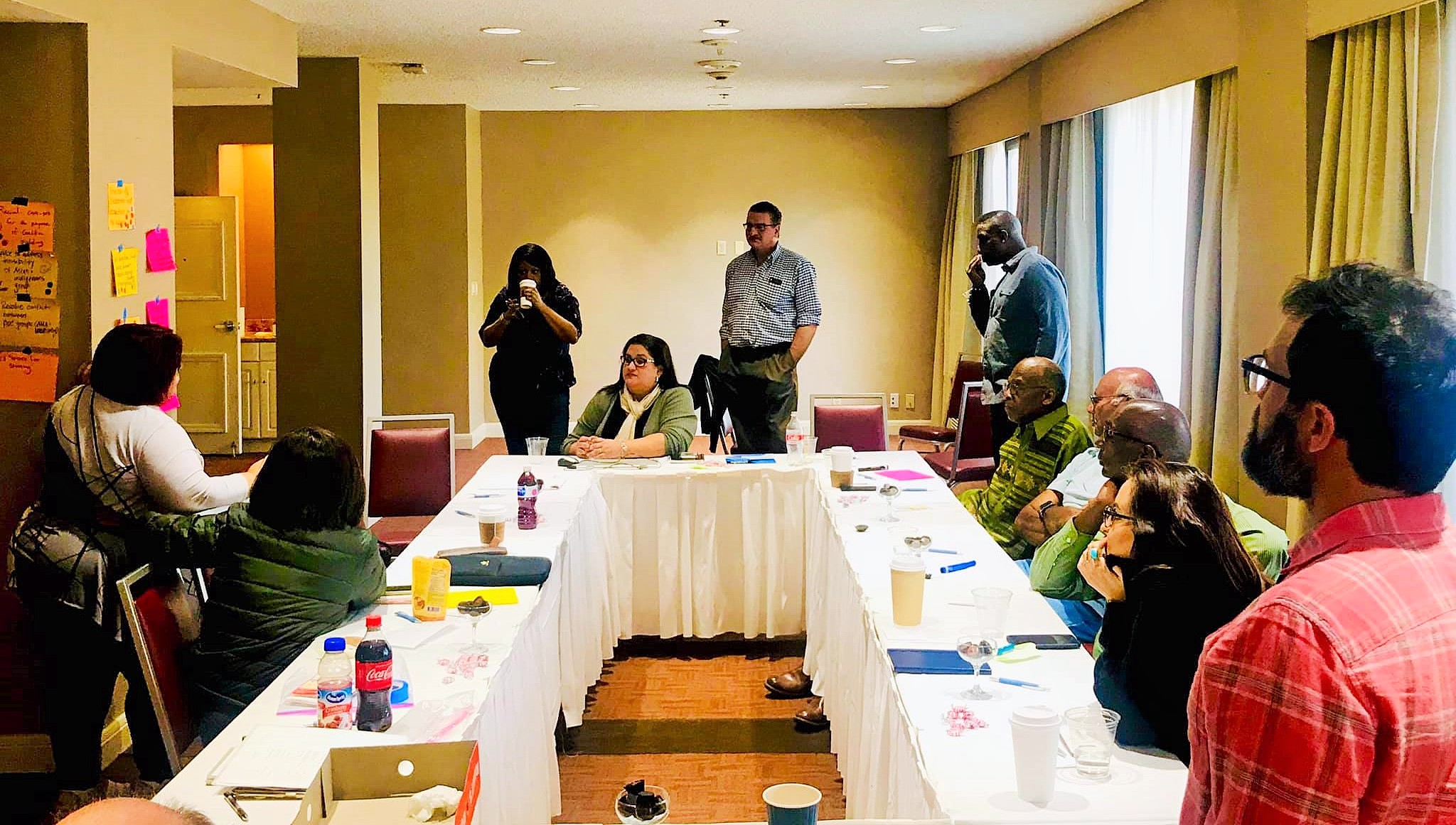
Several of the leaders who gathered for the Hope for the Future planning: (L-R) Roy Williams, Isaac Villegas, Carlos Romero, Stanley Green, Sandra Montes-Martinez, Joseph Manickam
(Mennonite Church USA) — A group of 12 Mennonite Church USA leaders who have been involved with Hope for the Future (HFF) in the past, met in Los Angeles, California, Jan. 26-27, and agreed that the next HFF gathering would take place in January 2020. The group worked together to redefine the purpose of HFF to include worship, sharing resources and learning together as people of color. This meeting was held in place of the annual HFF event to allow organizers time to evaluate feedback from participants. The leaders in attendance were Stanley Green, Carlos Romero, Sue Park-Hur, Tony Brown, Sandra Montes-Martinez, Hyacinth Stevens, Joseph Manickam, Roy Williams, Erica Littlewolf, Jim Alvarez, Iris de León-Hartshorn and Isaac Villegas.
“Due to the tremendous pressure of our current cultural climate, the group agreed that having an event for people of color is important to create safe spaces for people to come together for renewal,” said de León-Hartshorn, associate executive director of Operations for MC USA.
“In today’s context, it is important for leaders of color to have a place where they can talk and share openly about the realities that they face,” said Romero, executive director of Mennonite Education Agency. “Our goal is to find ways to call the church to live out the vision that God has called us to.”
Since 2011, HFF has brought together leaders of color from across the church, sometimes with white allies, to explore the ways that power, privilege and racism function in the denomination, as well as provide spaces of retreat and networking.
At the January meeting, participants reviewed the history of HFF, creating a timeline using themes and agendas from past gatherings to discern the future direction of the event. They included positive experiences and tensions that arose at each particular gathering. Together, the group identified three main areas of interest for holding HFF: (1) worshipping together, holding Bible study and sharing resources; (2) working at systemic change within the church; (3) and gathering senior-level staff in MC USA institutions and boards for support and problem-solving.
“It became clear that tensions that arose at some of our gatherings resulted from various interests and priorities represented,” de León-Hartshorn said. “We realized that trying to meet these all the diverse interests and priorities in one space was not possible.”
Participants decided to move forward with the next HFF in January 2020 with a clearly defined focus on worship and resourcing. They also identified a planning team. In addition, the group left open the possibility of creating additional groups — one for supporting people of color who serve as senior staff in MC USA institutions and another to focus on systemic change within MC USA. More details on these groups will be available at the 2020 event.
“We share an appreciation for the tremendous gifts in worship-leading and preaching from Mennonite people of color and feel that it’s important to highlight these gifts among us at Hope for the Future events,” said de León-Hartshorn.
“The times we live in demand of the church urgent, creative witness grounded in the reconciling work of Jesus on the Cross and rooted in justice, without which we have a false peace,” said Green, executive director of Mennonite Mission Network. “It is imperative for the church’s integrity that we find creative, constructive solutions that help us become a church for all God’s children. HFF is committed to that hard but necessary work.”


